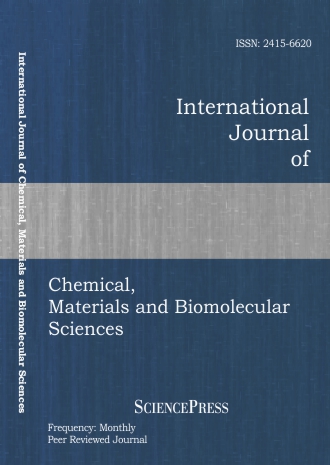
Scholarly
Volume:6, Issue: 12, 2012 Page No: 1129 - 1131
International Journal of Chemical, Materials and Biomolecular Sciences
ISSN: 2415-6620
1562 Downloads
Disinfection of Water by Adsorption with Electrochemical Regeneration
Arvia®, a spin-out company of University of Manchester, UK is commercialising a water treatment technology for the removal of low concentrations of organics from water. This technology is based on the adsorption of organics onto graphite based adsorbents coupled with their electrochemical regeneration in a simple electrochemical cell. In this paper, the potential of the process to adsorb microorganisms and electrochemically disinfect them present in water has been demonstrated. Bench scale experiments have indicated that the process of adsorption using graphite adsorbents with electrochemical regeneration can be used for water disinfection effectively. The most likely mechanisms of disinfection of water through this process include direct electrochemical oxidation and electrochemical chlorination.
Keywords:
References:
[1] Metcalf and Eddy., (2003). Wastewater Engineering, Treatment and